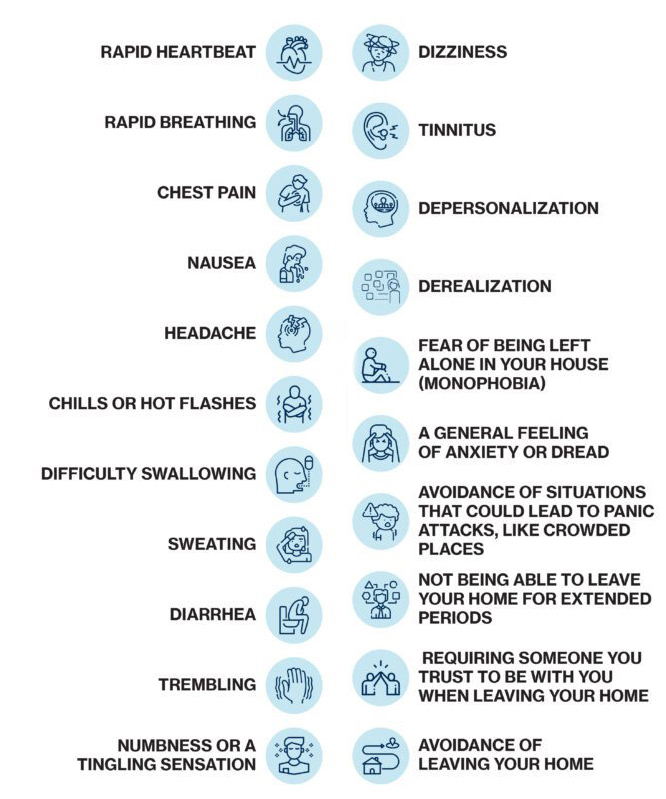Contreltophobia
Contreltophobia also called Agraphobia; is the fear or phobia of being sexually abused, assaulted, or raped. This fear goes beyond the “normal” fear of this happening since it is logical to be afraid of being raped or abused. This leads to AGORAPHOBIA which is covered by VSARD under PTSD Claim CFR 4.130 9412 Panic disorder and/or agoraphobia. Here is how it is rated.


Symptoms AGORAPHOBIA include fear of:
- Leaving home alone.
- Crowds or waiting in line.
- Enclosed spaces, such as movie theaters, elevators, or small stores.
- Open spaces, such as parking lots, bridges, or malls.
- Using public transportation, such as a bus, plane, or train.
These situations cause anxiety because you fear you won’t be able to escape or find help if you start to feel panicked. Or you may fear having other disabling or embarrassing symptoms, such as dizziness, fainting, falling or diarrhea.
In addition:
- Your fear or anxiety is out of proportion to the actual danger of the situation.
- You avoid the situation, you need a companion to go with you, or you endure the situation but are extremely upset.
- You have major distress or problems with social situations, work, or other areas in your life because of fear, anxiety, or avoidance.
- Your fear and avoidance usually last six months or longer.
Panic Disorder Agoraphobia
Some people have panic disorder in addition to agoraphobia. Panic disorder is a type of anxiety disorder that includes panic attacks. A panic attack is a sudden feeling of extreme fear that reaches a peak within a few minutes and triggers a variety of intense physical symptoms. You might think that you’re totally losing control, having a heart attack or even dying.
Fear of another panic attack can lead to avoiding similar situations or the place where it happened in an attempt to prevent future panic attacks.
Symptoms of a panic attack can include:
- Rapid heart rate.
- Trouble breathing or a feeling of choking.
- Chest pain or pressure.
- Lightheadedness or dizziness.
- Feeling shaky, numb or tingling.
- Sweating too much.
- Sudden flushing or chills.
- Upset stomach or diarrhea.
- Feeling a loss of control.
- Fear of dying.
Some more of the disabilities survivors of MST may experience are:
- Strong emotions, such as feeling depressed, having intense, sudden emotional responses to things, or feeling angry or irritable.
- Feeling numb or emotionally “flat,” or having difficulty feeling positive emotions like love or happiness.
- Trouble sleeping or having bad dreams.
- The trouble with attention, concentration, or memory.
- Using alcohol or other drugs to numb or escape from negative feelings.
- Difficulties with reminders of the MST experience.
- Feeling on edge or “jumpy” or not feeling safe.
- Going out of your way to avoid reminders of the trauma.
- Self-doubt, self-blame, or low self-esteem.
- Questioning important aspects of yourself like your gender identity or sexual orientation.
- Problems in relationships, trouble trusting others, or feeling alone or not connected to others.
- The trouble with employers or authority figures, or difficulty keeping a job.
- Physical health problems like chronic pain, weight or eating problems, or stomach or bowel problems.
- Difficulties with arousal, enjoyment, performance, or pain during sex, or avoiding intimacy.
- Self-harm or unsafe behaviors like thoughts of suicide, cutting, risk-taking, or aggression.
- Hypervigilance and generalized anxiety disorder
- Flashbacks and panic attacks
- Avoidance of social situations that could be triggering
- Anger management issues
- Depression
- Thoughts of self-harm
- Your background can also shape how MST is experienced, its impact, and your recovery.
- Some MST survivors experience discrimination related to race, ethnicity, gender identity, or sexual orientation during or after MST.
- Major Depression
- Female reproductive health issues
- Higher risk of substance abuse
- Sexual dysfunction
- Higher risk of cardiovascular disease
- Injuries to the genital area.
- Injuries to the breasts,
- Injuries to the upper inner thigh, buttocks, back, head, neck, patterned injuries, and defensive injuries.
- Vaginal or anal bleeding or infection
- Hypoactive sexual desire disorder
- Vaginitis or vaginal inflammation
- Dyspareunia – painful sexual intercourse
- Vaginismus – a condition affecting a woman’s ability to engage in any form of vaginal penetration
- Chronic pelvic pain
- Urinary tract infections
- Pregnancy
- HIV/AIDS
- A blow or jolt to your head, potentially causing a traumatic brain injury (TBI)
Migraine and back pain are two of the top service-connected conditions for women Veterans. Many also experience chronic neck pain, back pain, pelvic pain, arthritis, joint problems, and fibromyalgia, among others. It’s important to remember that chronic pain is not “in your head.” Chronic pain is real pain that interferes with physical, social, and even emotional well-being. Chronic pain can:
- Make it difficult to work and perform everyday activities
- Make mental health conditions worse, like irritability, depression, anger, or even trauma
- Interfere with sleep
- Prompt people to withdraw from friends or loved ones
- Cause people to give up treasured activities like hobbies
- Make it hard to exercise, which can contribute to weight gain
- Create financial difficulties from lost wages or the high cost of medical treatments
Here are more Effects and Aftermath of being raped?
What are the injuries and wounds caused by rape?

